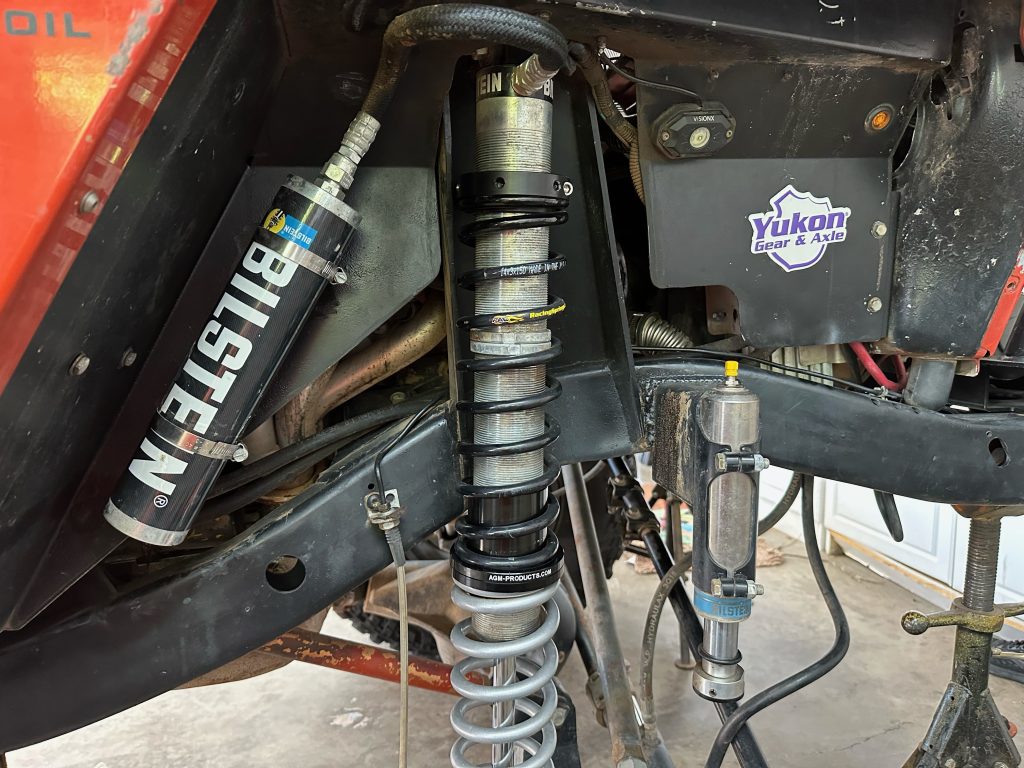I have always heard about AGM-Products and their suspension sliders, but I only needed to look into them once I got some Bilstein coil-overs. Most coil-overs come with some form of slider to divide the upper and lower spring so you can have a true dual-rate coil-over, and they do their job just fine, but what if you could have something better?
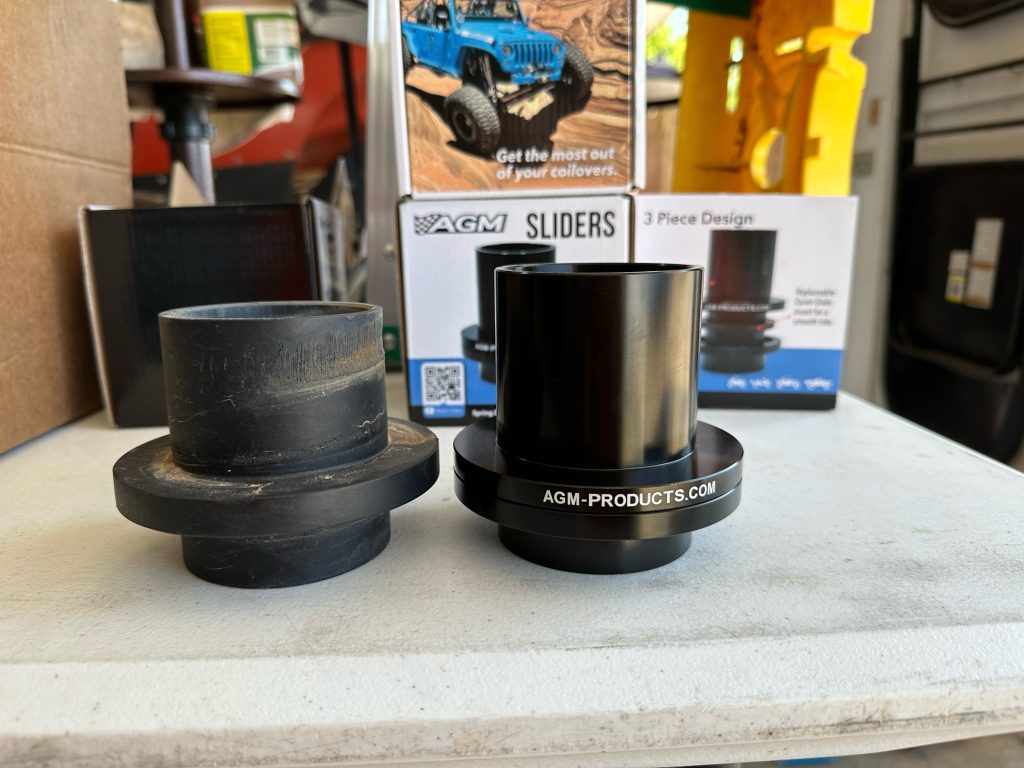
When I first put on my coil-overs, I looked into buying the AGM suspension sliders, but unfortunately, I was out of money at the time. But after installing them this last weekend and wheeling the LJ over the previous year and a half, I wish I had installed them from the beginning.
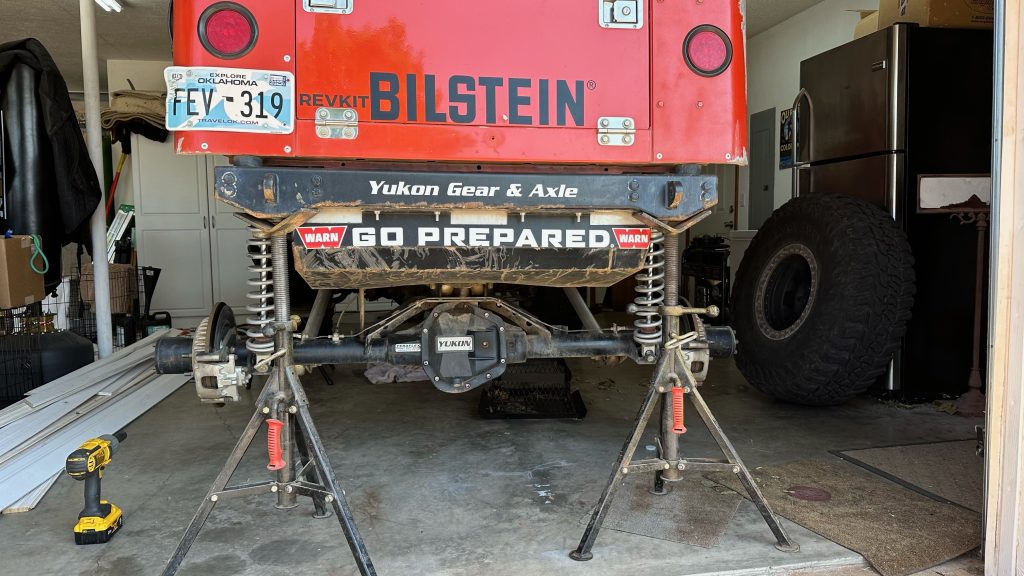
What exactly are they, and why would you need them? Almost every coil-over comes with a slider, a piece that divides the upper and lower springs, allowing the two to coil up or fully extend. Most are just simple pieces of plastic. AGM found that this can cause binding as it does not allow the two different springs to move independently and can cause premature wear on the stock slider. AGM went to the drawing board and created a three-piece design allowing each spring to rotate as needed throughout its cycle. The upper and lower pieces are made from 6061 aluminum, while the inner part is made of proprietary plastic of some kind, and that makes up the three pieces.
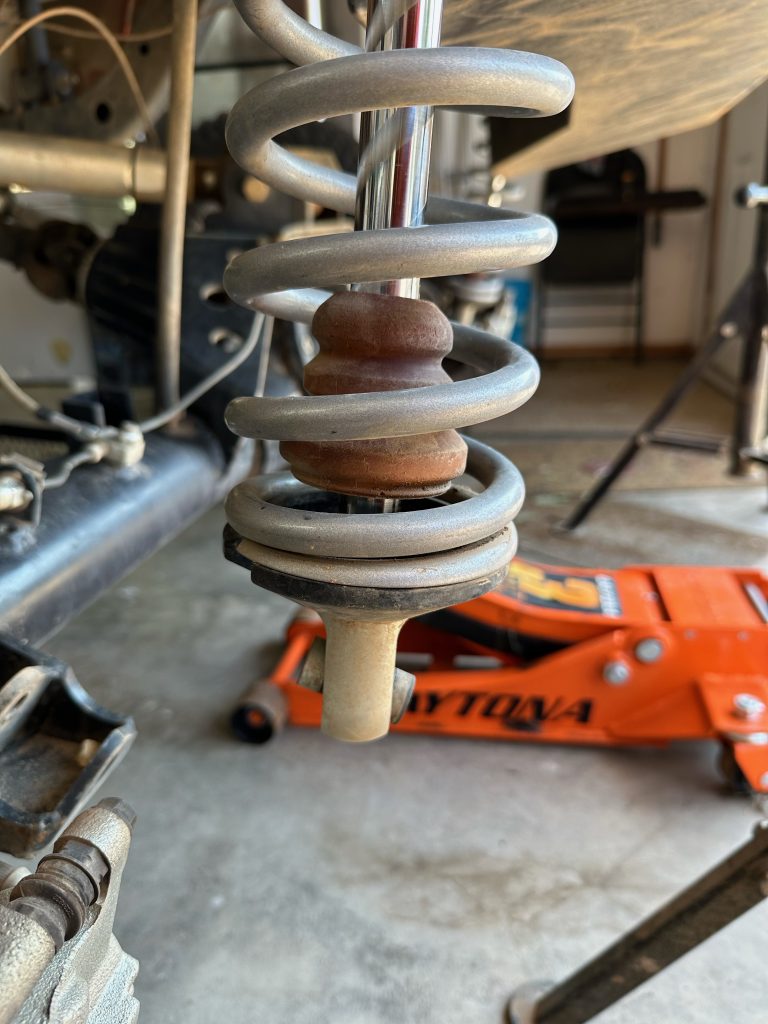
After listening to my springs rub up against the stock slider when I would go off-roading, I finally decided I needed these. I knew that was the noise; I could tell it was a plastic rubbing noise. Now that I have them, it is time to get them installed.
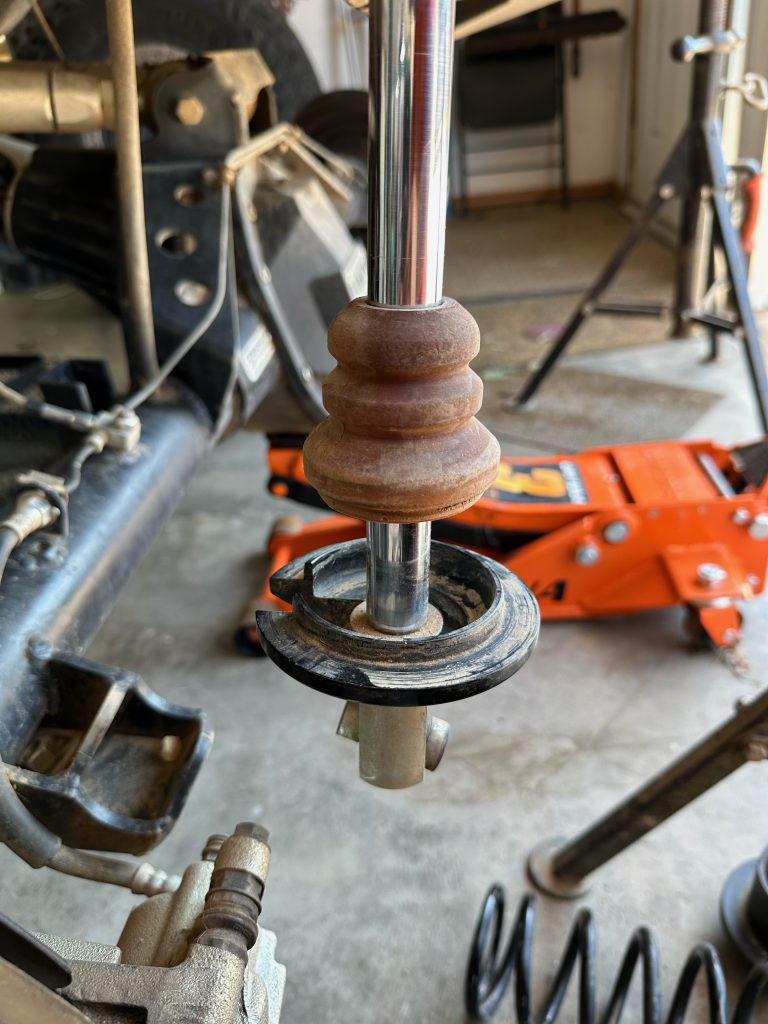
I started with the Jeep’s rear, knowing it would be easier than working on the front. I borrowed some tall jack stands from my buddy as I do not have a lift. If you have a vehicle lift, the job could be done faster than I did. Even without a vehicle lift, I finished the job in just over two hours. I raised the Jeep up, removed the tires, and put the jacks on the rear bumper. I then let the suspension hang down so I could work on each side to get the AGM sliders on. Thankfully I was able to get the old springs off without completely removing the coil-over, which saved a lot of time and headaches.
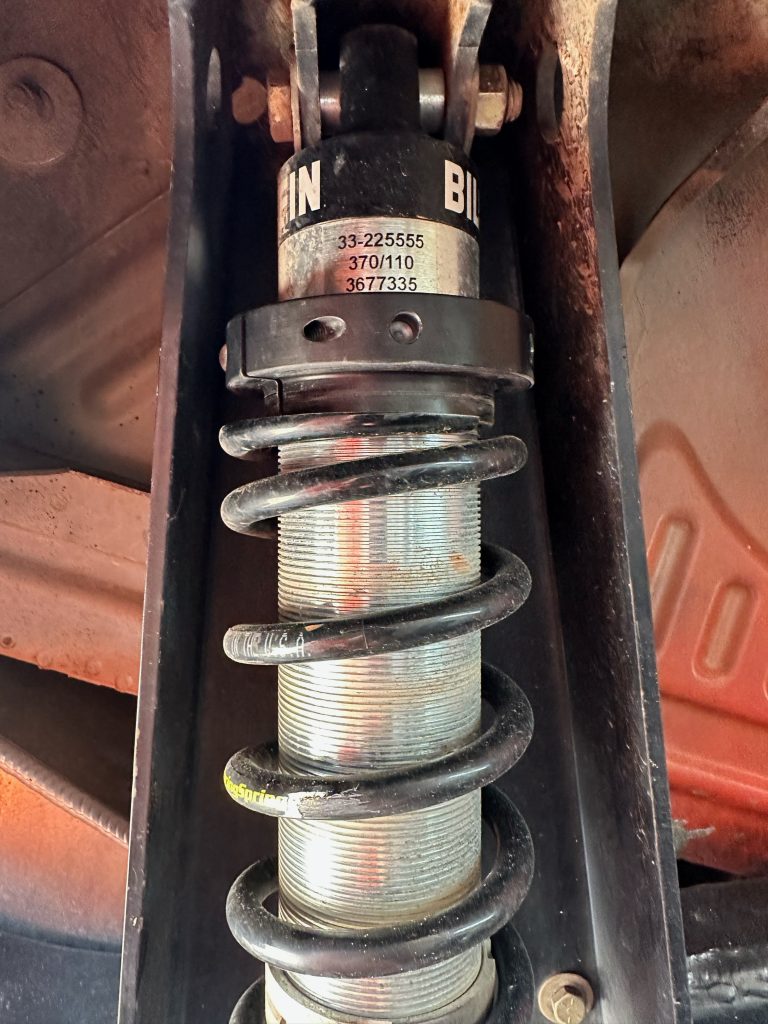
To make it easier, loosen the top preload nut completely. Each coil-over is different in how they work, but on the Bilsteins, all you need to do is loosen the set screw and loosen the nut back. Doing this will allow you to quickly move the bottom coil up enough to get the bottom coil mount off so the coils slide off. Now that the coils and old slider are off, time to put everything back together. The top coil goes on, the AGM slider, and the bottom coil. Since the preload nut is up, you can push the coils up enough to get the coil retainer on so you can then preset everything again. Another item the Bilsteins have that not all coil-overs have is a built-in bump stop. To get the coil mount off, you must move the built-in bump stop up enough to pull the coil mount off.
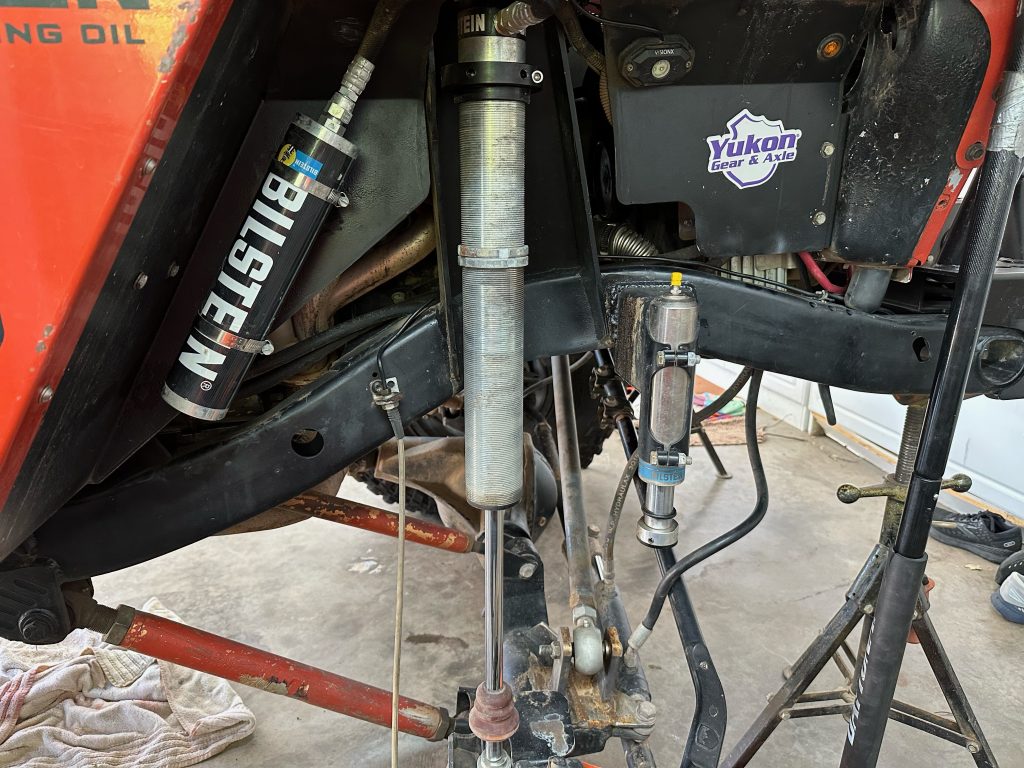
For the most part, the rear and front come apart and go back together the same way. The most significant difference is how you go about lifting the vehicle. The rear is more accessible due to the fact you can lift the whole vehicle with the rear pumpkin. You should be more careful with the front as it can move side to side easier as you droop the axle. I started with the passenger and then moved to the driver’s side once it was done.
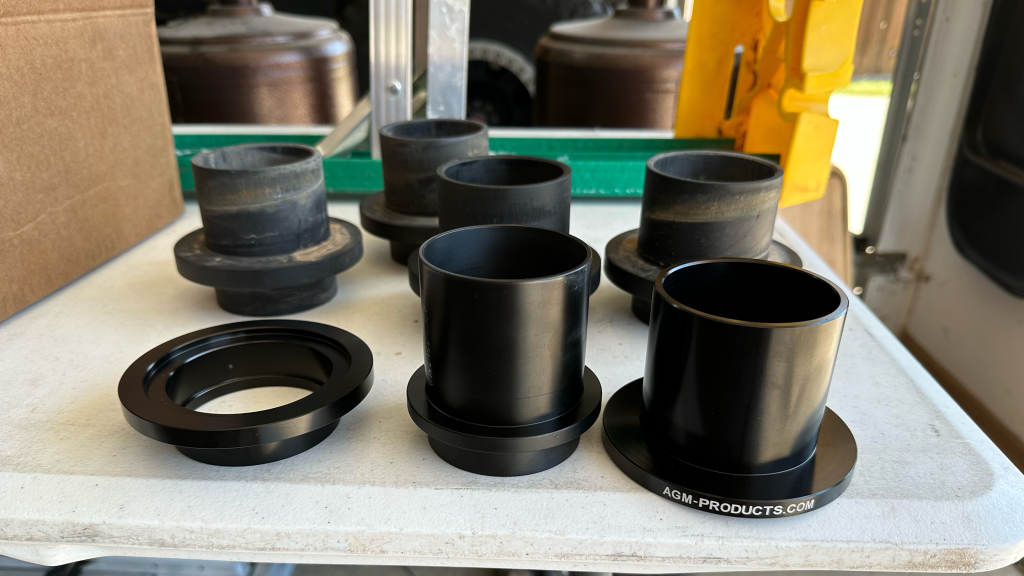
If you are on the fence about adding these to your coil-overs, you must go ahead and get off the fence. One of the AGM company’s best features in its suspension sliders: they make them specific for each company’s coil-over and size. So whether you have Bilsteins, Fox, or Kings, AGM makes a product for you.
